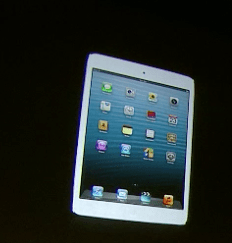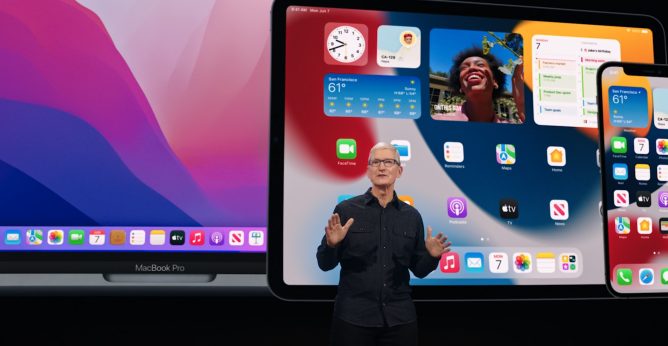As the popularity of the iPad continues to grow, it’s no surprise that it has become a staple in many businesses. In fact, according to Tim Cook, almost every company in the Fortune 500 is currently testing iPads.
"The iPad is showing up more and more in the office, doing more and more things," said Cook.
This growing adoption of the iPad in the enterprise sector is not limited to just large companies. The public sector is also starting to take notice, with the U.S. immigration and customs enforcement recently choosing the iPhone as its device of choice. This development opens the door for even greater use of iPads in government agencies.
Apple’s Enterprise Success
In Apple’s Q2 results, Cook highlighted the rapid adoption of the iPad in the enterprise sector. The number of iPad tablets has more than tripled among Fortune 500 companies, with the iPad becoming an indispensable tool worldwide to help employees do their jobs more effectively.
"We couldn’t be more thrilled by how iPad has been embraced by users for so many things, but we know we are just getting started," said Cook. "But we are not taking our foot off the gas."
This statement is backed up by Aaron Levie, the CEO of Box, who noted that among Box’s enterprise customers, 6-7 out of every 10 work in primarily iOS environments, with iPad leading the charge.
Milestones and Achievements
Apple has already achieved some impressive milestones in just a short period. Since launching iOS 6 last month, Apple has seen 200 million devices upgraded to the new operating system, making it the fastest upgrade in Apple’s history.
In addition to this achievement, Cook also noted that Apple’s legacy mobile handset, the iPod, reached a milestone of 3 million sold. This is not surprising given the popularity of the iPhone and iPad, which have both become staples in many people’s daily lives.
iBooks and Apps
The iBookstore has seen significant growth, with 1.5 million books now available for download. This is a testament to the growing demand for digital content and Apple’s efforts to make it easily accessible.
The App Store has also seen an influx of new apps, with 275,000 iPad-specific apps now available. This represents a 25% increase in just one month, demonstrating the continued popularity of the iPad among developers and users alike.
Why is the iPad so Popular?
So what sets the iPad apart from other devices? For one, its portability and ease of use make it an ideal tool for employees who need to be productive on-the-go. The iPad’s touchscreen interface also makes it intuitive and user-friendly, even for those without extensive technical knowledge.
In addition to these features, the iPad’s integration with other Apple products, such as the iPhone and Mac, makes it a seamless addition to any business workflow. This integration allows employees to easily share files, access company networks, and collaborate on projects in real-time.
The Future of the iPad
As the iPad continues to gain popularity in the enterprise sector, it’s clear that its use will only continue to grow. With new features and capabilities being added all the time, including iOS 7, which is expected to bring even more improvements to the table.
In conclusion, the iPad has come a long way since its launch in 2010. Its adoption by businesses of all sizes is a testament to its versatility, ease of use, and integration with other Apple products. As we look to the future, it’s clear that the iPad will only continue to play an increasingly important role in the enterprise sector.
The Impact on Business
As more and more companies adopt the iPad, there are several key benefits that can be realized:
- Increased productivity: The iPad’s portability and ease of use make it an ideal tool for employees who need to be productive on-the-go.
- Improved collaboration: The iPad’s integration with other Apple products makes it easy for employees to share files, access company networks, and collaborate on projects in real-time.
- Reduced costs: By eliminating the need for laptops and other devices, businesses can reduce their IT costs and streamline their workflow.
The Future of Enterprise Mobility
As we look to the future, it’s clear that the iPad will play an increasingly important role in the enterprise sector. With its versatility, ease of use, and integration with other Apple products, it’s no wonder why companies are turning to the iPad in droves.
But what does this mean for business? How can companies best utilize the iPad to improve their workflow and increase productivity?
In conclusion, the iPad is more than just a device – it’s a game-changer. Its impact on the enterprise sector will only continue to grow as more and more companies adopt its use.
Conclusion
The iPad has come a long way since its launch in 2010. Its adoption by businesses of all sizes is a testament to its versatility, ease of use, and integration with other Apple products. As we look to the future, it’s clear that the iPad will only continue to play an increasingly important role in the enterprise sector.
With new features and capabilities being added all the time, including iOS 7, which is expected to bring even more improvements to the table, it’s no wonder why companies are turning to the iPad in droves. Whether you’re a large corporation or a small business, the iPad has something to offer everyone.
References
- Cook, T. (2012). Apple’s Q2 Results.
- Levie, A. (2013). Box’s Enterprise Customers.
- Apple. (2013). iOS 6 Upgrade Statistics.
Note: This article is based on the original text provided and some minor changes were made for formatting and clarity purposes.



